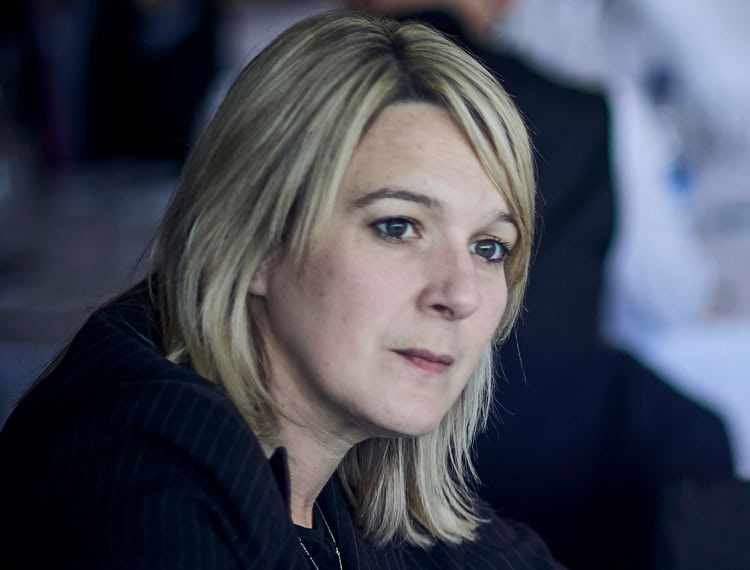Why now’s the best time to rethink our education system

Exam results day. This annual event is stressful enough at the best of times. Imagine then, how much more stressful it is when a global pandemic has prevented you from taking exams in the first place, and your fate is decided not by your proven track record or your teacher’s assessment but by a computer.
Sadly, we don’t need to imagine this nightmare, it is in fact the reality for many young people in 2020. This month, the government showed us a masterclass of how not to assess young people, by downgrading thousands of students’ results based on a flawed algorithm. While a justifiable public outcry has led to red faces and an eventual embarrassing U-turn on this decision, it should remain a cautionary tale. The cancellation of exams was understandable given the pandemic. But if a dodgy algorithm takes precedence over our young people’s futures, hasn’t our fixation with measuring results gone too far?
The sad truth is, our obsession with exam results is a longstanding problem. Irrespective of the pandemic, coursework, oral tests and science experiments are increasingly being weeded out in favour of written exams. The problem is, teaching to the test fails to acknowledge that young people need more than good results to thrive in life and work. For years, employers have expressed that what they want are communication, team-working and problem-solving skills. Everything else, so it goes, young people can learn on the job.
This is not to diminish the importance of academic and technical qualifications. But given what employers are saying, it seems strange that we’re still so focused on producing what we can easily measure. A young person’s knowledge recall (which is what exams really determine) is not a key skill for the future economy.
Since 2015, young people need to be in some form of education until 18. That change was meant to be part of a plan to shift towards a broader, more balanced curriculum with the introduction of Diplomas. The latter never took off and so we still find ourselves with high-stakes testing at 16 even though this is no longer the end-point of education. This begs the question: what should we really be measuring, and how should we be measuring it? Edge’s focus is on tackling these questions.
Our future vision would be for all young people to undertake a rounded assessment at the age of 18. Importantly, this needs to end the division between A-levels and BTECs – we must start treating technical and academic subjects with equal merit, we all need a broad approach to learning. It should include a focus on personal development and an extended project, too, allowing young people to develop independent skills. This isn’t radical. The Extended Project Qualification (EPQ) already exists. It’s widely-used by independent schools and well-respected by universities. But it remains vastly underused.
The second step is to measure young people’s skills development. Edge partners a fantastic organisation called Skills Builder. Largely run by teachers, they help measure and develop young people’s skills from primary school all the way through secondary. They also partner with employers, offering huge potential for connected skills development in the workplace.
The most important piece of the puzzle, though, is to create a rigorous set of destination measures. While current measures exist, they tend only to track young people for six or nine months post-education. Yet the data exists to measure progress for up to a decade. While we can’t attribute a young person’s entire early career to their education, it would certainly help identify patterns. Consider students with top grades who drop out of university, for example. Longer-term measures could help us offer them alternative career pathways. Improved destination measures will produce a richer picture of success. We know that what the Government measures is given priority in schools and this creates a perverse incentive.
Now is the time for change. Education has never been one-size-fits-all, but there’s far more freedom in the system than people realise. For instance, many free schools are already increasing teacher training, partnering with local employers and cultivating a shift towards project-based learning. By building confidence and awareness of the possibilities, Edge aims to help all education institutions adopt new approaches. To create more opportunities for young people, we need to shift away from rote learning alone.
The pieces are in place. There are strong views from teaching unions that this is the right approach. Employers want it. Polling by Edge also suggests that most parents would support a move away from high-stakes testing at 16. Lockdown has brought things into focus, and no doubt the results fiasco has only sharpened it further. The current situation offers the greatest opportunity for step change that our education system has seen in years. Transform today, and we can better prepare young people for an unpredictable future. And if nothing else, at least let’s do away with the make-or-break pressure of exam results day, especially when nobody is even taking exams!
Alice Barnard, Chief Executive at the Edge Foundation











Responses